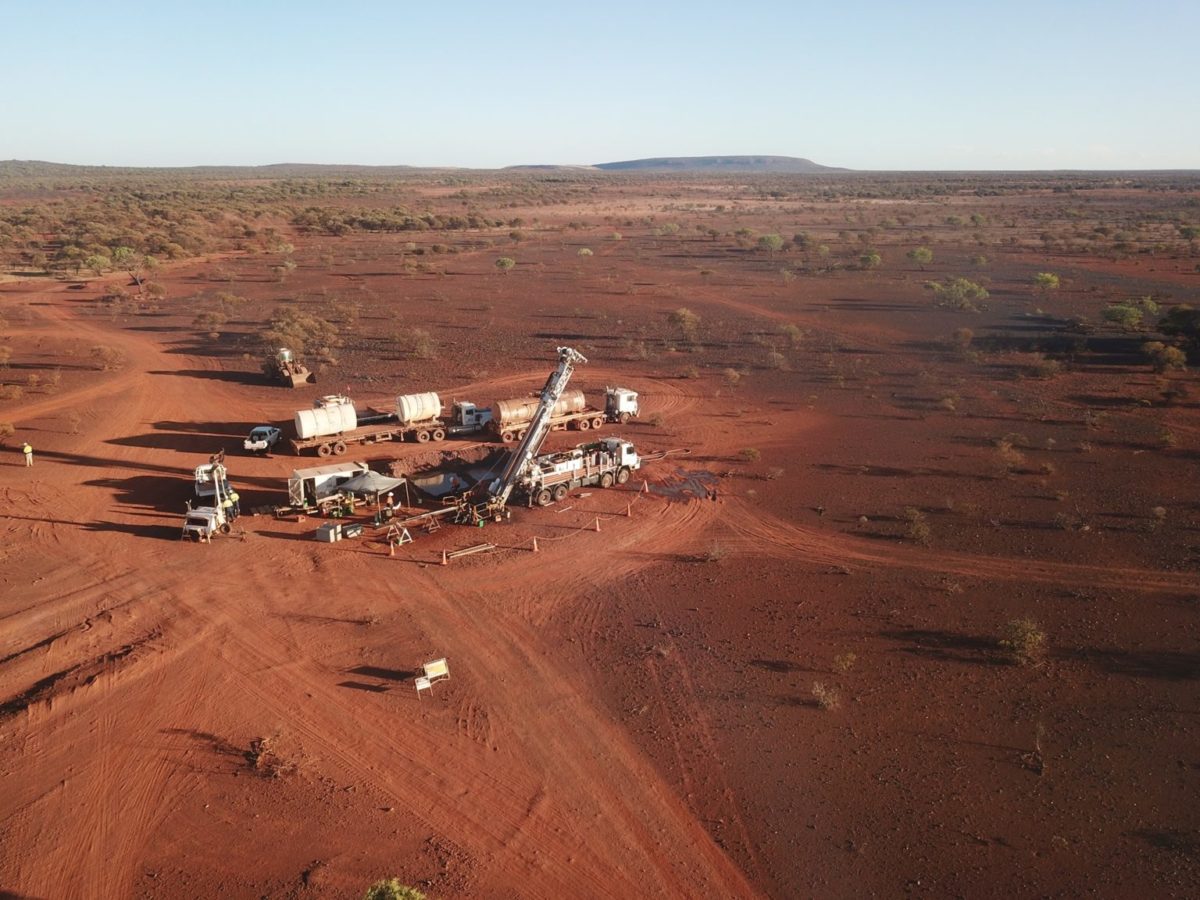Perth-based Australian Vanadium Limited (AVL) has secured a $3.69 million federal government manufacturing grant which will allow it to design, build and operate a $7.4 million commercial vanadium battery electrolyte plant in Western Australia (WA) and develop vanadium redox flow battery (VRFB) prototypes for both off-grid and residential settings.
AVL managing director Vincent Algar said the matched-funding grant will also allow the company to finalize its high-purity vanadium pentoxide processing route as part of the development of its Australian Vanadium Project located in the Murchison province in WA.
AVL plans to supply vanadium pentoxide (V2O5) from the Australian Vanadium Project to manufacture vanadium electrolyte which will then be supplied to VRFB projects in Australia and in the Asia Pacific Region.
“The grant will provide support to AVL to achieve production of high-purity vanadium pentoxide, which is a key input to vanadium-titanium master alloys for critical steel applications and vanadium electrolyte for batteries,” Algar said. “The grant will allow AVL to produce vanadium electrolyte commercially to support the development of the long-duration energy storage market, which will play a key role in future grid stability in this renewable energy generation era.”
AVL said the electrolyte plant will be the first plant of its type in the region. Conditions of the grant dictate the manufacturing project must be fully completed by March 31, 2024.
Flow batteries are emerging as an alternative to lithium-ion batteries which currently dominate the energy storage sector.
Lithium-ion batteries are solid-state batteries, storing energy in metal, whereas flow batteries store energy in electrolyte liquids. They usually comprise two tanks, one containing a positively charged anode and the other with a negatively charged cathode, separated by a membrane.
Supporters of the technology claim using liquids allows flow batteries to produce electrical currents without degradation, giving the batteries a longer cycle life and allowing them to store charge for longer periods compared to lithium-ion batteries. It also makes them non-flammable and well-suited to Australian conditions.
Algar said the appeal of VFRB is clear, declaring them ideal for providing long-duration energy storage, from three to 12 hours, while vanadium electrolyte – which accounts for 30% to 60% of the cost of the battery, depending on how many hours of storage are required – can be leased to reduce capital cost and can be 100% reused or recycled at the end of the battery’s mechanical life
“VRFB battery systems are easier to manufacture than other batteries, due to the use of only a single metal component, vanadium, to store the energy,” Algar said.
“They are ideal for accelerating battery manufacturing in Australia, using locally produced vanadium and other battery components.”
AVL is one of eight companies in the resources technology and critical minerals sectors awarded a matched-funding grant under the Australian Government’s Resources Technology and Critical Minerals Processing National Manufacturing Priority roadmap.
Minister of Industry Science and Technology Christian Porter on Thursday announced almost $50 million had been allocated to the eight companies as part of the $1.3 billion Modern Manufacturing Initiative.
“Australia’s resource sector is world-class,” he said. “We are helping to unlock this enormous potential by providing targeted support for projects that will deliver big rewards for our local economy in terms of export earnings and new job opportunities.
“It is also critical that we build our sovereign capability in this sector, with China currently the world leader in critical minerals processing including battery production.”
“Whether it’s building large-scale battery systems, adding value to critical minerals exports through new refining techniques, or driving the adoption of battery power in mining vehicles, these projects will increase Australia’s international competitiveness and help position us a future leader in this crucial sector.”
Other recipients include New South Wales-based Batt Mobile Equipment which received $4.5 million in funding to build heavy battery electric vehicles (EVs) for underground hard rock mines.
Lynas Rare Earths will use its $14.8 million in funding to develop a world-first process to refine rare earth ore – essential for permanent magnet and EV production. The new refining process reduces the need for hazardous chemicals and delivers a significantly higher-grade product for export. The project will be based in WA’s Goldfields region.
Elphinstone in Tasmania will receive $5.1 million in funding to develop a range of battery-powered underground mining support vehicles that eliminate the need for diesel use in underground environments.
In the Northern Territory, Core Lithium will use its $6 million in funding to help build a pilot processing facility for the production of battery-grade lithium hydroxide while Queensland-based Brisbane METS Lab No. 1 will use its $1.2 million to develop its vanadium processing pilot plant.
This content is protected by copyright and may not be reused. If you want to cooperate with us and would like to reuse some of our content, please contact: editors@pv-magazine.com.




1 comment
By submitting this form you agree to pv magazine using your data for the purposes of publishing your comment.
Your personal data will only be disclosed or otherwise transmitted to third parties for the purposes of spam filtering or if this is necessary for technical maintenance of the website. Any other transfer to third parties will not take place unless this is justified on the basis of applicable data protection regulations or if pv magazine is legally obliged to do so.
You may revoke this consent at any time with effect for the future, in which case your personal data will be deleted immediately. Otherwise, your data will be deleted if pv magazine has processed your request or the purpose of data storage is fulfilled.
Further information on data privacy can be found in our Data Protection Policy.